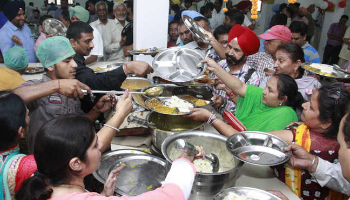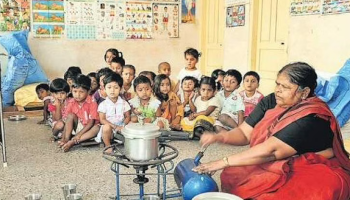Teachers get 10 days to comment on draft law to replace UGC with a new regulator
28 June 2018: On 27 June, the Ministry of Human Resource Development announced that it will repeal the University Grants Commission Act, 1956 and issued the draft law, the Higher Education Commission of India (Repeal of University Grants Commission) Act, 2018.
India has nearly 850 universities and over 40,000 colleges. The draft law envisages major changes to the existing regulatory and
financing regime. Most crucially, the proposed regulator will not disburse funds to public institutions. Currently, the government’s funding for public higher education is routed through the UGC, an autonomous body under the HRD ministry led by academics. In the new regime, the grant functions would be done directly by the ministry. This direct control of the Ministry and its power to even order closure in academic institutions will influence purpose and focus of education and curtail the autonomy of institutions. The purpose of UGC was to prevent such interference. Teachers and policy experts have until July 7 to review and comment on this proposal.
Cabinet approves revised guidelines on time bound closure of sick or loss making CPSUs
6 June 2018: The Union Cabinet approved revised guidelines on time-bound closure of sick and loss making central public sector enterprises and disposal of their movable and immovable assets.
The guidelines accord first priority to utilisation of land of central public sector enterprises (CPSEs) under closure for affordable housing as per the relevant guidelines of the Ministry of Housing and Urban Affairs. According to the guidelines the employees of these enterprises will be offered voluntary retirement at 2007 national pay scale.
The Commerce and Industry Ministry sets up expert group to study SEZ Policy
6 June 2018: The Ministry of Commerce and Industry constituted an expert group chaired by Baba Kalyani, the Chairman of Bharat Forge, to study the Special Economic Zones (SEZ) Policy of India. The group is required to submit its recommendations within three months. This Group will: (i) evaluate India’s SEZ policy; (ii) suggest measures to cater to the needs of exporters in the present economic scenario; and (iii) make the SEZ policy compatible with the World Trade Organisation. The US on 14 March challenged India’s export subsidy regime in the WTO including the special economic zones. Both sides engaged in consultations but failed to resolve the matter bilaterally. The WTO has set up a dispute panel to give its verdict on the matter. The present effort of the Commerce Ministry is in response to this pressure.


